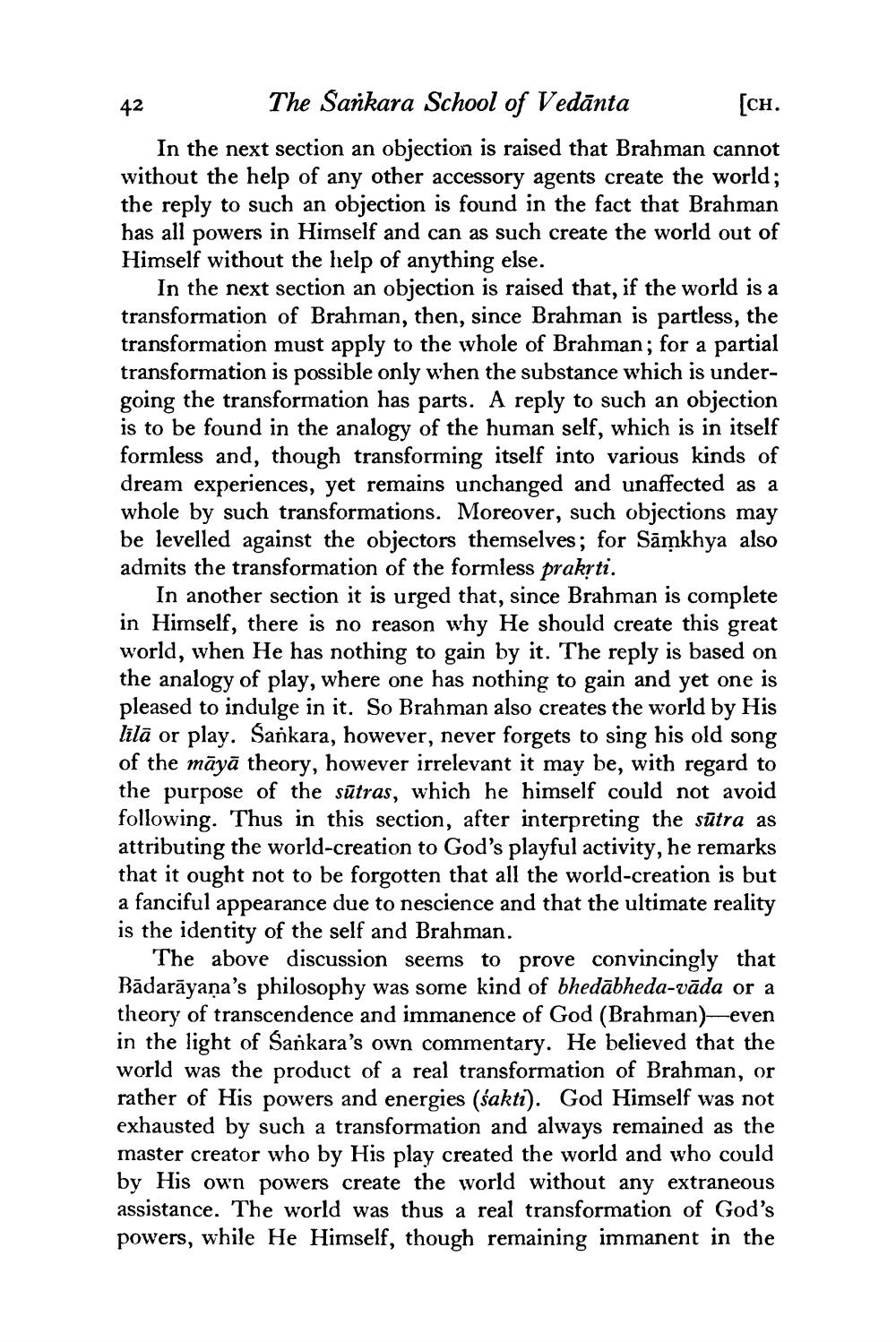________________
42
The Sankara School of Vedānta [ch. In the next section an objection is raised that Brahman cannot without the help of any other accessory agents create the world; the reply to such an objection is found in the fact that Brahman has all powers in Himself and can as such create the world out of Himself without the help of anything else.
In the next section an objection is raised that, if the world is a transformation of Brahman, then, since Brahman is partless, the transformation must apply to the whole of Brahman; for a partial transformation is possible only when the substance which is undergoing the transformation has parts. A reply to such an objection is to be found in the analogy of the human self, which is in itself formless and, though transforming itself into various kinds of dream experiences, yet remains unchanged and unaffected as a whole by such transformations. Moreover, such objections may be levelled against the objectors themselves; for Sāmkhya also admits the transformation of the formless prakrti.
In another section it is urged that, since Brahman is complete in Himself, there is no reason why He should create this great world, when He has nothing to gain by it. The reply is based on the analogy of play, where one has nothing to gain and yet one is pleased to indulge in it. So Brahman also creates the world by His lilā or play. Sankara, however, never forgets to sing his old song of the māyā theory, however irrelevant it may be, with regard to the purpose of the sūtras, which he himself could not avoid following. Thus in this section, after interpreting the sūtra as attributing the world-creation to God's playful activity, he remarks that it ought not to be forgotten that all the world-creation is but a fanciful appearance due to nescience and that the ultimate reality is the identity of the self and Brahman.
The above discussion seems to prove convincingly that Bādarāyana's philosophy was some kind of bhedābheda-vāda or a theory of transcendence and immanence of God (Brahman)-even in the light of Sankara's own commentary. He believed that the world was the product of a real transformation of Brahman, or rather of His powers and energies (sakti). God Himself was not exhausted by such a transformation and always remained as the master creator who by His play created the world and who could by His own powers create the world without any extraneous assistance. The world was thus a real transformation of God's powers, while He Himself, though remaining immanent in the




